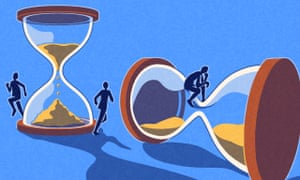Government intervention failures can have significant and varied effects on economic actors and citizens. Real-life examples illustrate how these failures impact various aspects of the economy and society:
1. Economic Inefficiency: In the 1970s, India implemented the License Raj system, requiring businesses to obtain licenses for various activities. This intervention led to bureaucratic red tape, delays, and corruption. The system stifled economic growth, discouraged entrepreneurship, and resulted in inefficient allocation of resources.
2. Reduced Economic Growth: In Venezuela, price controls were imposed on essential goods like food and medicine to address inflation. However, the price controls led to shortages, hoarding, and black markets, ultimately undermining the country's economic growth and exacerbating its economic crisis.
3. Higher Costs: The U.S. government's attempt to subsidize the ethanol industry for fuel production led to unintended consequences. Corn prices surged due to increased demand for ethanol production, affecting food prices and leading to higher costs for consumers.
4. Distorted Incentives: In some countries, agricultural subsidies intended to support farmers' incomes created incentives for overproduction, leading to surpluses and contributing to trade disputes on the international stage.
5. Unequal Outcomes: Government interventions in housing markets, such as rent control policies, can lead to housing shortages and unequal access to affordable housing for low-income citizens.
6. Diminished Investment: Uncertainty and frequent policy changes in a country's tax laws or regulations can discourage foreign and domestic investments, hampering economic growth and job creation.
7. Erosion of Trust: A series of government corruption scandals and ineffective responses to economic crises in certain countries have eroded public trust in government institutions and leadership, leading to social unrest and political instability.
8. Political Instability: The failure of the government to address issues of inequality and social discontent in some countries has resulted in political unrest and mass protests, leading to instability and disruption of economic activities.
9. Loss of Freedom: Restrictive government regulations on certain industries can limit individuals' and businesses' freedom to make choices and adapt to changing market conditions.
10. Disruptions to Social Programs: Inadequate implementation of social programs like healthcare and education can result in reduced access to essential services for citizens, particularly those in marginalized communities.
11. Wasted Resources: Inefficient government spending on large-scale infrastructure projects that yield little economic benefit or face significant delays can waste valuable resources.
12. Environmental Consequences: Government policies meant to address environmental issues may have unintended negative consequences. For instance, subsidizing fossil fuels to keep energy prices low can discourage investment in renewable energy sources and exacerbate climate change.
Conclusion: Government intervention failures can have far-reaching effects on economic actors and citizens, impacting economic growth, efficiency, individual freedoms, and overall societal well-being. Learning from past mistakes and adopting evidence-based policies is essential to avoid such failures and create effective interventions that address market failures without causing unnecessary harm to the economy and citizens. Regular evaluation, transparency, and responsiveness to feedback can help mitigate the negative effects of government intervention failures and promote better outcomes for all.


